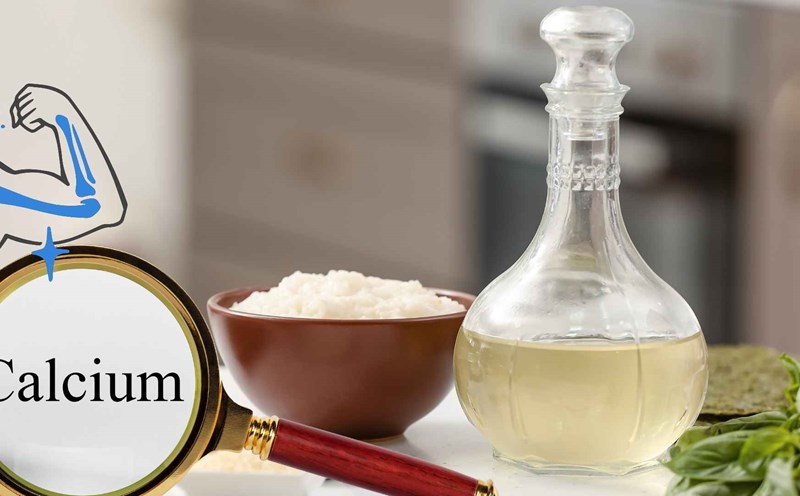Benefits of drinking vinegar before meals
Ms Akshita Reddy, a nutritionist at Athreya Hospital, Bengaluru (India), said that vinegar - especially apple cider vinegar - contains acetic acid, which has been shown to increase the production of digestive enzymes and stomach acid. This can help break down food more effectively.
One of the most studied benefits of drinking vinegar before meals is its ability to regulate blood sugar. Studies have shown that acetic acid can improve insulin sensitivity and reduce blood sugar spikes after meals.
Drinking vinegar before meals can also help boost metabolism and promote weight loss. Because acetic acid can increase fat burning and reduce fat storage.
Vinegar has also been linked to improved heart health by helping to lower blood pressure, cholesterol, and triglyceride levels. The acetic acid and antioxidants in vinegar may help reduce oxidative stress and inflammation, both of which are risk factors for heart disease.
Improve skin health
According to Dr. Akshita Reddy, the acetic acid in vinegar helps balance the pH of the skin. A balanced pH can improve the skin's barrier function, reducing problems like dryness, irritation, and acne.
When used regularly, the effects of vinegar can also contribute to improving skin health from the inside out.
Vinegar, especially fruit-based vinegar like apples, contains antioxidants like polyphenols. These compounds help neutralize free radicals in the body, which are known to damage cells and accelerate skin aging.
“The antioxidants in vinegar, such as polyphenols, may help reduce oxidative stress in the body, contributing to healthier skin and reducing signs of skin aging. Modulating the gut microbiome through vinegar consumption may also indirectly benefit skin health by reducing systemic inflammation,” says Dr. Akshita Reddy.
Side effects
While drinking vinegar regularly has some potential benefits, there are also some risks and side effects to consider, especially for people with certain health conditions:
Digestive problems: Drinking vinegar, especially on an empty stomach, can increase stomach acidity, potentially causing acid reflux, heartburn, or worsening symptoms of gastritis and stomach ulcers.
Tooth Enamel Erosion: Vinegar is highly acidic, and regular consumption, especially in undiluted form, can erode tooth enamel over time. This can increase the risk of cavities and tooth sensitivity.
Potential drug interactions: Vinegar may interact with certain medications, including those used to treat diabetes and heart disease. Consult a healthcare professional if you are taking medication.
Bone Health: Excessive consumption of vinegar can lead to decreased potassium levels in the body, which can affect bone density and overall bone health.











